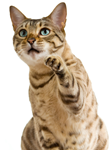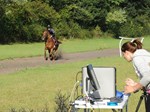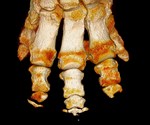Search - Research
331 - 340 of 541 results
-
VetCompass promotes undergraduate research outputs at BSAVA 2024.
An impressive fourteen VetCompass projects will be presented at BSAVA Congress 2024 in Manchester this week. Twelve of these projects were undertaken by undergraduate veterinary medicine students and a further two undertaken by Master of Research … -
International Canine Health Postgraduate Student Inspiration award
Congratulations to Alice Denyer, who has won the Kennel Club's International Canine Health Postgraduate Student Inspiration award to help further her research into the genetic differences between individual dog breeds that are susceptible to …Congratulations to Alice Denyer, who has won the Kennel Club's International Canine Health …
-
VetCompassTM study identifies top dog breeds affected with demodicosis
Demodicosis is a relatively common parasitic skin disease in dogs that results when the normally harmless Demodex spp. mites in hair follicles multiply to excessive numbers. Clinical presentation can vary, but severe lesions and secondary infection … -
Lymphoma cancer most common in old male cats according to RVC
The RVC had published the world’s largest study on lymphoma cancer in cats under general veterinary care. This new study revealed that approximately 1 in 2000 cats (48 per 100,000) under first opinion veterinary care are affected by lymphoma every … -
Galloping isn’t such hard work for horses
For the first time, external mechanical work in galloping racehorses has been measured using force plates as ergometers. The results of this study, conducted by Royal Veterinary College (RVC) researchers in the Structure and Motion Laboratory, have … -
New innovative study proves racehorses use less energy to gallop than previously thought
Researchers from the RVC have made use of force plate technology to accurately measure the external work of galloping in racehorses. This technique, which has never been used for such large animals at high speed before, showed that horses had much …Researchers from the RVC have made use of force plate technology to accurately measure the external …
-
RVC study uses computer optimization to show ostrich gait in detail never seen before
Study published in the Journal of the Royal Society Interface, focused on the mechanics and the muscles used by ostriches, the world’s fastest two-legged animal, as they walk and run -
RVC uses CT scans to diagnose musculoskeletal disease in elephants
Study will help vets recognise foot disease and continue to improve elephant welfare and management -
Royal Veterinary College receives £5 million Government grant to drive research commercialisation
A consortium led by The Royal Veterinary College (RVC) is to receive £4.96 million, of a total £67 million Government investment, awarded through Research England’s Connecting Capability Fund (CCF). This funding aims to drive the commercialisation of research in universities across the UK. It acknowledges the RVC’s position as a leading institution for pioneering research and knowledge exchange.A consortium led by The Royal Veterinary College (RVC) is to receive £4.96 million, of a total £67 …
-
The RVC maintains strong results in third iteration of the Knowledge Exchange Framework
The Royal Veterinary College (RVC) has continued to score highly in the third iteration of the Knowledge Exchange Framework (KEF3), exceeding the peer average in some categories. This reflects the institution’s strengths in its research partnerships, …The Royal Veterinary College (RVC) has continued to score highly in the third iteration of the …


%20PA-Jeff%20Spicer.JPG?v=638497413237594817)







